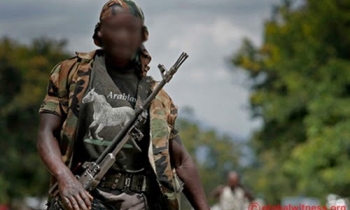Botswana's Minister of Communications, Science and Technology, Pelonomi Venson, has announced that she will be presenting the controversial Mass Media Bill to Parliament. The proposed law has been rejected by media practitioners because they feel there was no extensive consultation with all stakeholders.
In a statement in Parliament at the end of March 2006, Venson said the Mass Media Bill would give legal powers and authority to the Press Council to perform its functions. She told Parliament that consultations are ongoing at cabinet level to pave the way for the adoption of a more comprehensive Broadcasting Policy. The draft Broadcasting Policy is a product of the National Broadcasting Board (NBB). It was compiled after extensive consultations with various stakeholders.
"I do not wish to pre-empt the deliberations of cabinet, but both the Mass Media Bill and the Broadcasting Policy will reach this Honourable House as products of holistic, universal and democratic consultations," she said. Venson said her ministry is trying to bring professionalism to the public media and is not introducing any laws or regulations that are inconsistent with the dictates of the Constitution.
"As a matter of fact, never before has government addressed media issues in as holistic and universal manner as we have been doing in recent years. My ministry is actively engaged in the establishment and improvement of product quality, standards and professionalism in the media through the Media Advisory Council (MAC). This all-embracing sub-committee of the High Level Consultative Council enjoys the active participation of private media practitioners, experts and personalities," she said.
Meanwhile, the national director of the Botswana chapter of the Media Institute of Southern Africa (MISA-Botswana), Modise Maphanyane, has expressed dismay that Venson intends to table the Mass Media Bill in Parliament.
"We don't expect any tabling of the Bill. We are of the belief that it has not been [properly] framed. What was discussed were the principles [to be followed in the drafting of the Bill]," said Maphanyane, adding that a task force was formed for this purpose.
"We don't believe we have been debating the Bill. We have been debating the principles. The minister must not confuse the two exercises. We are not waiting for the Bill. We are waiting for consultation. We take a dim view of the process," he said. Maphanyane said that initially, media organisations had given input to the proposed Bill but that this input was rejected on the basis that Bills are only formulated by the Attorney General.
BACKGROUND:
Vensons's announcement about the Mass Media Bill comes just after she read the riot act to the government media, following a series of news items which were seen to comment negatively on the state. Sources said there is a concern within government that state media has been reporting in a manner that portrayed the government in a bad light. Even the cabinet is reported to have expressed concern about this.
Another concern centres on recent articles on the children of prominent leaders. One of the articles which irked the authorities reports on the fact that Billy Kokorwe, the son of the Deputy Speaker of the National Assembly, Gladys Kokorwe, is facing rape charges. Kokorwe's case was given prominence by the state-owned television station, Btv. In the past, Kokorwe, a film producer, had clashed with the Btv management.
Last year, Venson summoned government journalists and warned them to be careful about what they ask during press conferences with visiting heads of state. One reporter said they have been warned not to ask embarrassing questions of the kind asked by members of the private press. He said that they were reminded that they were representing the government. The ministers who are overseeing the government media have always ruled the department with an iron fist.
In the mid-1990s, when he was a minister responsible for the department, the MP for Mmadinare, Ponatshego Kedikilwe, once penned an article about himself. Another minister, Boyce Sebetela, would at times chase away the Btv crew from Parliament and banned some programmes. Just before the 2004 general elections, he insisted that President Festus Mogae and Vice President Ian Khama should be given full television coverage by Btv in their campaigns. In the past, members of the opposition have protested that government media was giving disproportionate publicity to the ruling party.









